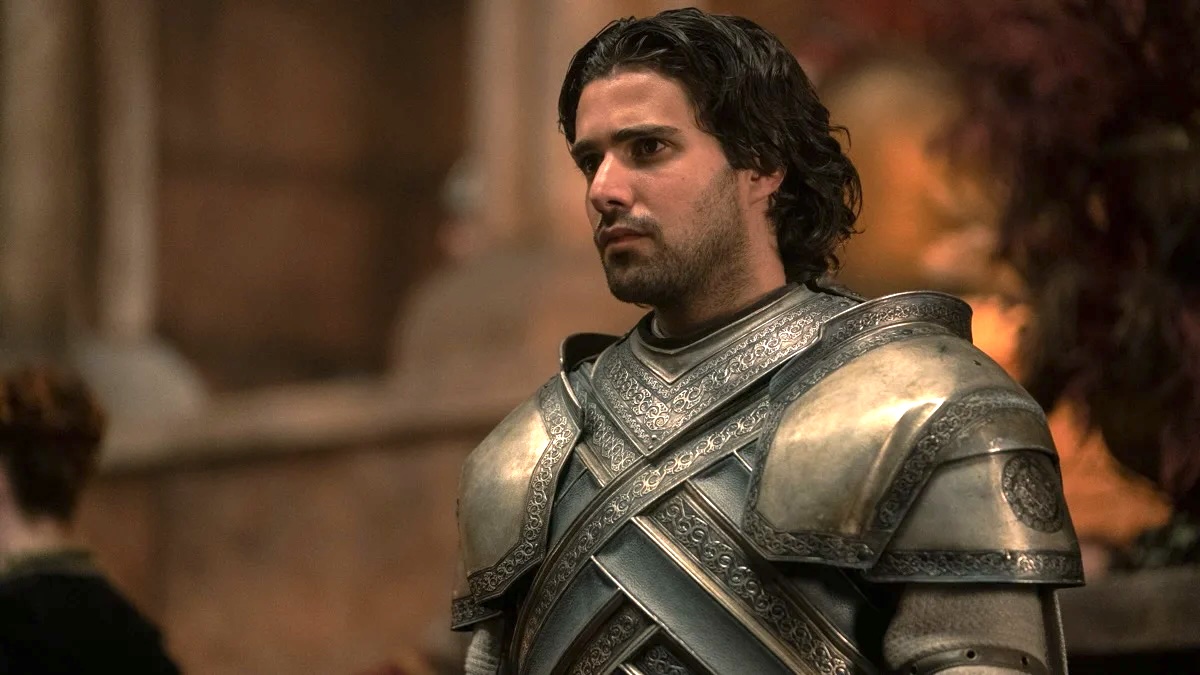‘House of the Dragon’s Most Hated Character Deserves (a Bit) More Credit

Team Green or Team Black, House of the Dragon fans unite with their dislike of Criston Cole (Fabien Frankel). Being a hypocrite seems to be Cole’s full-time gig, and he’s got a twisted sense of righteousness that has him saying some very not-nice things about Rhaenyra (Emma D’Arcy).
Despising him is beyond fair, and I’m personally on the Cole-is-horrible bandwagon. That said, all this unflinching hatred has resulted in audiences overlooking Cole’s complexity as a character. Yes, Cole is terrible, but he’s also had some pretty messy relationships with powerful women. Dubious consent and abuse of power lurk in many of the encounters, yet some brush these facts aside for an oversimplified argument: Cole bad; we hate. This isn’t to say that his poor behavior should be excused, but his motivations are more complex and nuanced than many give him credit for.
Criston Cole’s relationships began as an abuse of power
Abuse of power is an ongoing issue in workplaces everywhere. Its simplest definition involves a person with authority using their position of power to manipulate or harm others. This is the issue at the heart of Cole and Rhaenyra’s relationship. When Rhaenyra first names Cole her sworn shield, they have mutual trust. However, messy feelings and a significant power dynamic later complicate this.
Rhaenyra is a princess and heir to the throne, while Cole is a knight of low birthright. Not only is Cole sworn to protect her, but he is also sworn to celibacy because of the White Cloak Oath. The breaking point in their relationship comes when both oaths are threatened. Rhaenyra uses Cole for sexual gratification, complicating his duty as sworn shield and breaking his vow of chastity in the process.
The scene itself shows dubious consent, with Cole even uttering “stop” after Rhaenyra’s first advance. The next morning, it’s clear he is still uncomfortable. If the sexes were reversed (Cole a woman, and Rhaenyra a powerful man), this scene likely would’ve elicited a very different discussion. Generally speaking, society seems uncomfortable with male victims, especially when we’re talking about warrior archetypes, and this proves it.

It’s a complex situation because, of course, Rhaenyra’s young age plays a role here. She holds power over Cole, both sexually and literally, that she doesn’t fully understand. Cole’s fear of retaliation for refusing sexual advances doesn’t likely cross her mind, nor do the complex feelings that may arise after seducing him into breaking a vow of celibacy. In that respect, Cole’s ensuing marriage proposal is more likely about diminishing shame than anything else. He doesn’t want to make an “honest woman of her.” He is scrambling to make an “honest man of himself.”
Ironically enough, Cole finds himself in a similar situation with Alicent (Olivia Cooke) later on. Once again, there is a stark power imbalance coupled with guilt and shame. Is he sleeping with Alicent to gain petty revenge against Rhaenyra? Maybe. But is he also fearful of what will happen if he says no? Probably. Cole might be the poster boy for toxic masculinity, but he is also a victim. Powerful women have put him in compromising situations and don’t seem to fully grasp the emotional effect that might have on him.
Guilt and shame already consume Cole, so when Jaehaerys is murdered because he was busy hooking up with Alicent, it goes into overdrive. Unfortunately, his way of processing these feelings doesn’t involve soul searching and therapy but projection. Although he yells that “the white cloak is a symbol of our purity, our fidelity” at Ser Arryk, there’s no doubt that Cole is really addressing himself—and just like that, he reverts to petty bitterness yet again.
Criston Cole offers a unique male POV

Women struggling with the concept of piousness bestowed on them by society is a common theme in entertainment and literature. However, it’s rarely explored from a man’s point of view. Cole is in a unique situation where his honor is tied to his celibacy. The guilt of talking the talk but not walking the walk weighs heavily on him. He betrayed vows with Rhaenyra, and while he seems a bit more comfortable with Alicent, that power dynamic remains. Internally, he punishes himself, and when Jaehaerys is killed, Cole decides it’s another punishment for having sexual desires.
While Cole is definitely a jerk, that’s not the entire summation of his character. He has been put in imbalanced power situations that challenge his honor—the one thing he tries desperately clinging to, even though it’s badly misguided. With different writing, this could have made him sympathetic. Unfortunately, how he chooses to cope isn’t healthy, and in turn, he’s got a horde of angry House of the Dragon fans understandably cheering for his downfall.
Have a tip we should know? [email protected]